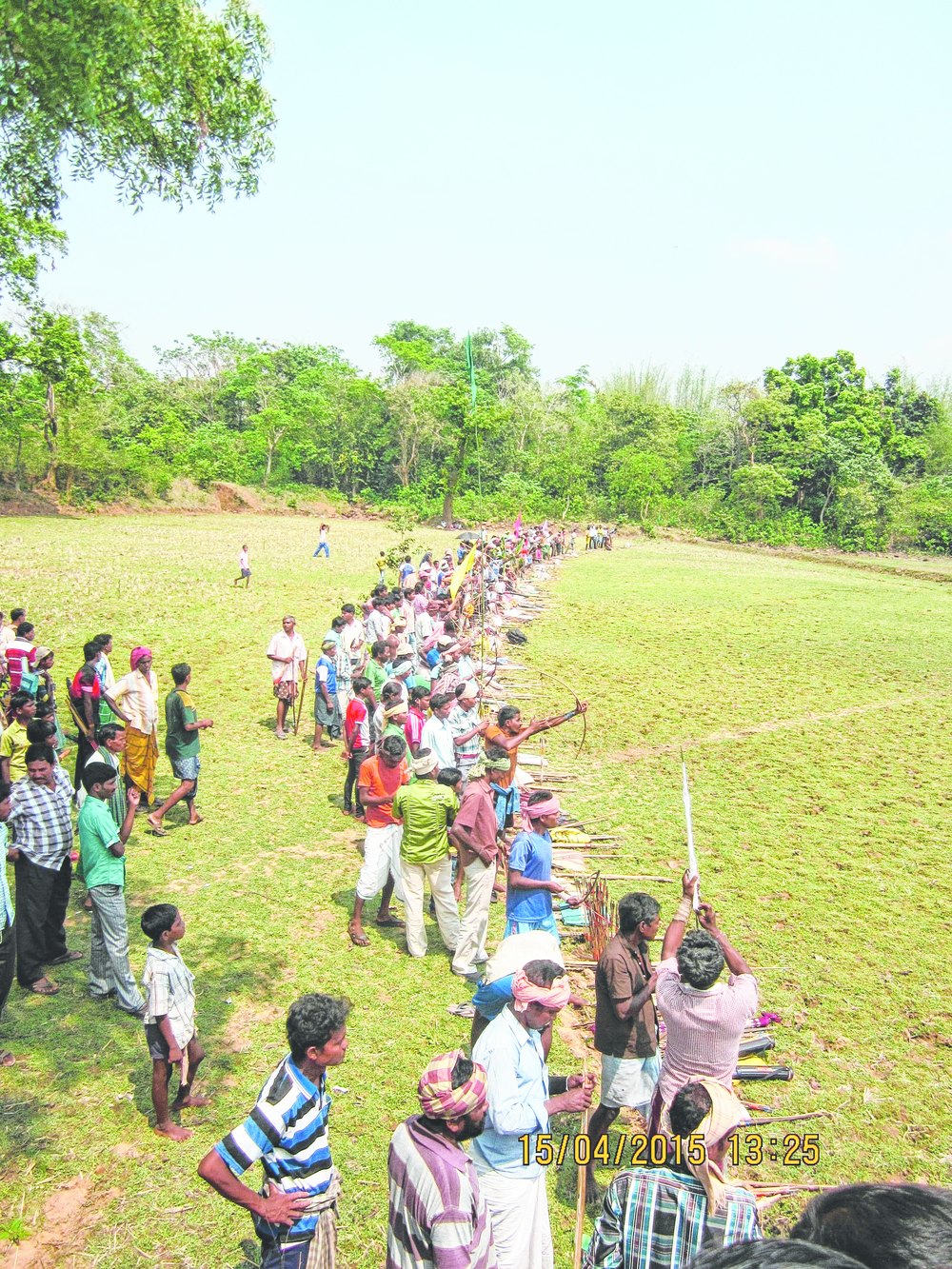
Baripada, April 18: A two-day archery competition among members of the local tribal community was organised in Mayurbhanj in order to wean them away from Akhand Sikar, an annual mass-hunting ritual, which they carry out during Maha Vishuba Sankranti.
The event was organised by a group of local youths in association with the Vana Surkshya Samity, a non-governmental organisation, and the forest department on Wednesday and Thursday at Bahlada village in the foothills of Dukura forest range in the Similipal sanctuary.
Nearly 3,000 participants - almost all of them from the ethnic communities from Odisha, Bengal and Jharkhand - took part in the event, and prizes worth of Rs 2.5 lakh were distributed among the winners.
In the archery competition, the authorities had instituted 35 awards in various categories. The ace archer received a motorbike and others had to be content with LCD TVs and other electronic gadgets.
Barathurpu Murmu, 25, the archer of Juradi village under Khunta block of Mayurbhanj won the motorcycle.
A forest department official said the event had not only helped the community members divert their attention from Akhand Sikar, but also became crucial in creating awareness among them.
Twice a year - on the occasions of Maha Vishuva Sankranti and Makar Sankranti - the local ethnic people enter the prohibited areas in the forest and kill animals as part of the age-old tradition.
As a ritual, they enter the forests in various groups before the Sankranti with weapons and logistics for surviving there for days together. Earlier, their stay in the forest could be stretched for three weeks or more. At times, they did not even return till they found their preys.
"During Akhand Sikar, the poachers kill animals that come in their way. There is even a belief among them that eating meat of the hunted animals could keep them free from diseases," wildlife activist Bhanoomitra Acharya.
Wild animals including deer and sambar are killed as part of the ritual. However, they never target animals such as tiger and elephants.
"With holding such competitions, we believe that some of the villagers' attention would get diverted from the illegal work. Therefore, such a contest is contributing towards keeping the ecological balance of Similipal," said Acharya.
Last year, there was no reported incident of hunting. However, nearly 400 villagers had made an attempt to enter the reserve forest.
"We have been organising the competition for the past four years. The number of participants is increasing every year. This time, we got nearly 3,000 participants and people from Bengal and Jharkhand, too, took part," said youth club secretary Mangal Lohar.
Last year, as many as 2,220 participants took part in the event.
Dukura forest range officer Batakrushna Padhi said: "Local forest protection assistants, engaged by the forest department, too, actively took part in the event. The youths, who depend mainly on farming, are determined to combat the menace of poaching."
He said: "The forest department gives a small financial help to the youth club, while it manages the event out of its own resources. We encourage them and our samity and the eco development committee help them in hosting the competition."
At the concluding ceremony, regional chief conservator of forests H.S. Bisht graced the occasion and appreciated the efforts of the local youths.
Wildlife enthusiast Bikaramadittya Guha Roy said the people taking part in such kind of hunting ritual, as well as the administration, often took recourse to traditions.
"But now, most of them are use to TV shows, wear jeans, move around with cell phones and guns as well. If they could sacrifice traditions to embrace technology, why can't they give up such rituals to embrace ecology? Besides, a hunter keeping in touch with his fellow hunters through cell phone is much more dangerous. In this case, an animal that might have escaped a hunter armed with spear or arrow doesn't get a chance to escape," he said.










